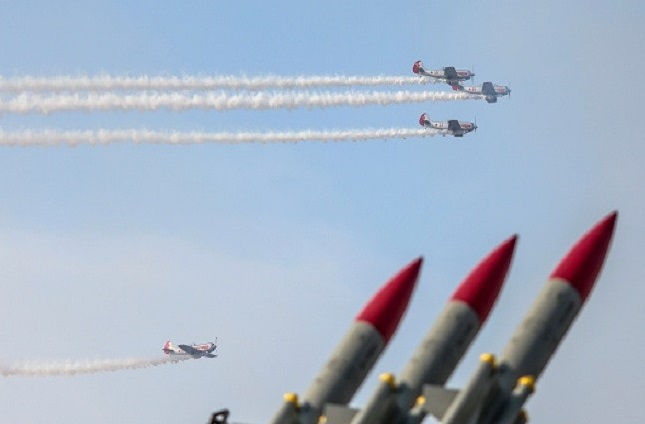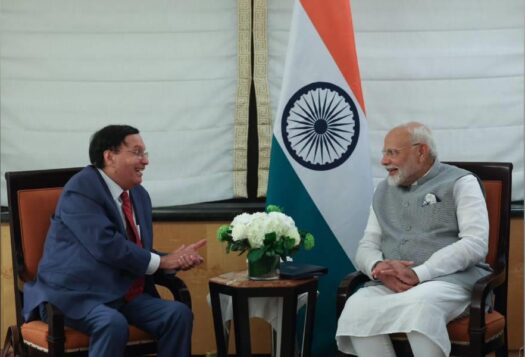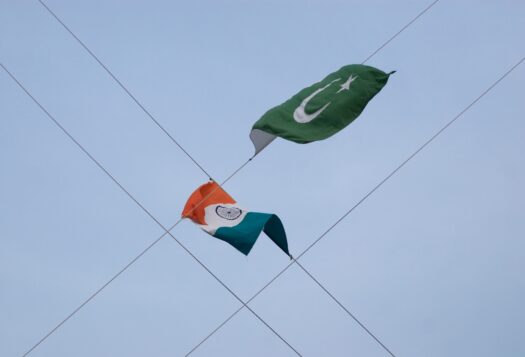
The global nonproliferation regime and India’s perception of it has evolved significantly over the last two decades. India’s nuclear restraint and “respect for non-proliferation goals” hold reasonable value, and these have convinced the world to accommodate India, and stabilized its relations with the broader non-proliferation regime.
After the 1998 nuclear tests, India’s then-external affairs minister Jaswant Singh, in a statement to parliament on the 2000 Non-Proliferation of Nuclear Weapons Treaty (NPT) Review Conference, declared: “India is a nuclear-weapon state. Though not party to the NPT, India’s policies have been consistent with the key provisions of NPT that apply to nuclear-weapon states.”
India has maintained its stance on the NPT stating, “India’s position on the NPT is well-known. There is no question of India joining the NPT as a non-nuclear weapon state. Nuclear weapons are an integral part of India’s national security and will remain so, pending non-discriminatory and global nuclear disarmament.” However, a major turning point came in 2005, when the U.S.-India civil nuclear deal was reached, as it laid the foundation for India’s involvement with the IAEA and other such international non-proliferation bodies. To this end, India has accepted some non-proliferation measures and has been billed “a responsible state with advanced nuclear technology.” Since then, India has tried to maintain harmony with the international non-proliferation regime, causing its integration into the community.
Recent examples of a shift in India’s approach have been New Delhi’s offering confidence building measures such as bilateral or multilateral agreements pledging no first use and no attack on non-nuclear weapon states. A bigger step towards India’s acceptance of global nonproliferation regimes came in June 2015, with its formal application for membership in the Missile Technology Control Regime (MTCR). This marked its first substantial contribution to the global non-proliferation cause. India is supported in this endeavor by the United States, and is also looking to be represented in other export control regimes, namely the Nuclear Suppliers Group (NSG), the Wassenaar Arrangement, and the Australia Group.
A voluntary and consensus-based group of countries, MTCR is based on shared “goals of nonproliferation of unmanned delivery systems capable of delivering weapons of mass destruction, and which seek to coordinate national export licensing efforts aimed at preventing their proliferation.” The association was created by Canada, France, Germany, Italy, Japan, the United Kingdom, and the United States, and has 34 members at present.
The July 2005 joint statement by then Prime Minister Manmohan Singh and President George W. Bush noted that India will assume “responsibilities and practices” to ensure that “necessary steps have been taken to secure nuclear materials and technology through comprehensive export control legislation and through harmonization and adherence to Missile Technology Control Regime (MTCR) and Nuclear Suppliers Group (NSG) guidelines.”
India has adhered to that promise by playing a proactive role in curtailing the spread of materials and other such technologies stated under the MTCR agreement. A major step has been India’s aligning its export control list of Special Chemicals, Organisms, Materials, Equipment, and Technologies (SCOMET) to meet MTCR and NSG requirements.
India is a leading importer and a potential major exporter of missiles and related technologies, and thus MTCR membership will bring gains and further enhance its missile and space programs. It will allow India to participate in high-tech, sensitive technology trade, which is generally dual-use.
India has already developed a political understanding among like-minded partners, but it needs to engage more nations to acquire support for its membership. One such member is Italy, which is challenging India’s membership because it is upset over two Italian marines being tried for killing two Indian fishermen in 2012. However, India’s reasonable record of non-proliferation has helped India gain trust among other nations. This dynamic will further shape India’s future engagement at the multilateral level, and impact the proceedings and outcome of the upcoming MTCR plenary meeting, to be held at Oslo.
***


